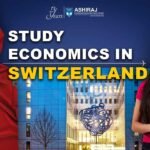
Economics in Netherland
Economics in NETHERLAND has long been recognized for its robust and dynamic nature, reflecting the country’s strategic geographical location, advanced infrastructure, and progressive policies. The Netherlands, known for its open economy, is a global hub for trade, finance, and innovation. Its well-developed logistics network, including the Port of Rotterdam and Schiphol Airport, plays a crucial role in facilitating international commerce. Additionally, the Dutch economy benefits from a highly skilled workforce and a strong focus on research and development, particularly in sectors such as technology, agriculture, and renewable energy.
In recent years, Economics in NETHERLAND has demonstrated resilience amidst global economic challenges, showcasing adaptability and strength. The nation’s commitment to sustainable growth and its proactive stance on climate change has positioned it as a leader in green economics. Furthermore, the Netherlands’ strong regulatory framework and favorable business climate continue to attract foreign investment, contributing to economic stability and growth. This multifaceted approach ensures that the Dutch economy remains competitive and innovative on the world stage.
Why to Study Economics in Netherlands?
- HighQuality Education:
Economics in NETHERLAND is known for its high academic standards and rigorous programs offered by top-ranked universities like the University of Amsterdam and Erasmus University Rotterdam.
- Global Recognition:
Degrees in Economics from NETHERLAND are internationally recognized and respected, providing graduates with global career opportunities.
- Research Opportunities:
NETHERLAND offers numerous research opportunities in economics, supported by advanced facilities and funding, enhancing academic and professional development.
- Diverse Specializations:
Students can choose from a wide range of specializations within Economics in NETHERLAND, including international economics, development economics, and behavioral economics.
- EnglishTaught Programs:
Many Economics programs in NETHERLAND are taught in English, making them accessible to international students without requiring proficiency in Dutch.
- Innovative Learning Environment:
The educational approach in NETHERLAND emphasizes critical thinking, practical application, and interactive learning, preparing students for real-world challenges.
- Strong Job Market:
Graduates of Economics in NETHERLAND benefit from a strong job market with ample career opportunities in finance, policy analysis, research, and data analytics.
- Cultural Experience:
Studying in NETHERLAND offers a rich cultural experience, with a diverse international community and vibrant student life.
- Scholarships and Financial Aid:
Various scholarships and financial aid options are available to support international students pursuing Economics in NETHERLAND, making education more affordable.
- Strategic Location:
NETHERLAND’s strategic location in Europe provides easy access to other major economic hubs, facilitating networking and career growth.
Top Universities to Study Economics in Netherlands
University | QS World University Ranking 2023 | Type of University | Average Annual Fees (EUR) | Programs Offered |
University of Amsterdam | 15 | Public | €2,168 – €4,500 | Bachelor’s, Master’s, PhD in Economics |
Erasmus University Rotterdam | 25 | Public | €2,168 – €4,500 | Bachelor’s, Master’s, PhD in Economics |
Delft University of Technology | 51 | Public | €2,168 – €4,500 | Bachelor’s, Master’s, PhD in Economics |
University of Groningen | 80 | Public | €2,168 – €4,500 | Bachelor’s, Master’s, PhD in Economics |
Leiden University | 90 | Public | €2,168 – €4,500 | Bachelor’s, Master’s, PhD in Economics |
When considering pursuing Economics in NETHERLAND, the country boasts several prestigious universities renowned for their quality education and research excellence. According to the QS World University Rankings 2023, the University of Amsterdam leads the pack, securing the 15th position globally. It offers a range of programs in Economics at competitive annual fees. Following closely is Erasmus University Rotterdam at 25th place, known for its strong economics faculty and diverse student body. Other notable institutions include Delft University of Technology, University of Groningen, and Leiden University, all within the top 100 globally. These universities provide comprehensive Economics programs at affordable fees, making them attractive destinations for aspiring economists seeking toptier education.
Course Curriculum for Economics in Netherlands
- Foundation Courses: Economics in NETHERLAND typically begins with foundational courses covering microeconomics, macroeconomics, and econometrics, providing students with a solid understanding of economic principles and theories.
- Specialized Tracks: Students can choose from various specialized tracks such as international economics, development economics, or behavioral economics, tailoring their studies to their interests and career goals.
- Quantitative Analysis: The curriculum emphasizes quantitative analysis, including advanced statistical methods and mathematical modeling, equipping students with the analytical tools necessary for economic research and policy analysis.
- Case Studies: Economics programs in NETHERLAND often incorporate case studies and realworld examples to illustrate theoretical concepts, fostering critical thinking and practical application of economic principles.
- Research Projects: Students may engage in research projects or internships, allowing them to apply their knowledge to realworld problems and gain handson experience in economic analysis and decisionmaking.
- Interdisciplinary Approach: Many programs adopt an interdisciplinary approach, integrating insights from related fields such as sociology, political science, and environmental studies, to provide a comprehensive understanding of economic phenomena in context.
Economics in NETHERLAND offers a rigorous and comprehensive curriculum designed to equip students with the analytical skills, theoretical knowledge, and practical experience necessary for success in various careers in economics, finance, public policy, and beyond.
Eligibility Criteria & Admission Requirements for MS in Economics in Netherlands
- Language Proficiency:
Applicants must demonstrate proficiency in English through standardized tests such as IELTS or TOEFL.
For IELTS, a minimum score of 6.5 is typically required, while for TOEFL, a score of 90 or above is commonly accepted.
- Standardized Tests:
Prospective students may need to submit scores from either the GRE or GMAT.
GRE scores of 160 (Verbal) and 160 (Quantitative) are often expected, although requirements may vary by institution.
Alternatively, a GMAT score of 600 or higher is typically required for admission to Economics programs.
Table: Required Scores for Standardized Tests:
Test | Minimum Score |
IELTS | 6.5 |
TOEFL | 90 |
GRE | Verbal: 160, Quantitative: 160 |
GMAT | 600 |
- Documentation:
Applicants must provide valid passport and student visa documents to study in NETHERLAND.
Academic certificates, including transcripts and diplomas, are required to demonstrate prior education qualifications.
Relevant work experience, particularly in economicsrelated fields, may enhance the applicant’s profile and strengthen their candidacy.
Economics in NETHERLAND programs typically have specific eligibility criteria regarding language proficiency, standardized test scores, and documentation, ensuring that prospective students possess the necessary skills and qualifications for academic success in the field.
Documents Required for Studying Economics in Netherlands
- Passport:
A valid passport is essential for international students applying to Economics programs in NETHERLAND, serving as proof of identity and nationality.
- Letters of Recommendation (LOR):
Typically, two letters of recommendation from academic or professional references are required, highlighting the applicant’s qualifications and potential for success in the program.
- Statement of Purpose (SOP):
An SOP articulates the applicant’s academic and career goals, reasons for choosing the program, and how it aligns with their aspirations in Economics in NETHERLAND.
- Curriculum Vitae (CV):
A comprehensive CV outlines the applicant’s educational background, work experience, skills, achievements, and any relevant extracurricular activities or research projects.
- Official High School Transcripts:
Transcripts from high school or equivalent institutions provide a record of the applicant’s academic performance and are required for undergraduate admissions.
- Educational Certificates:
Certificates or diplomas from previous educational institutions validate the applicant’s academic qualifications and achievements, serving as essential documentation for admissions.
- Work Experience Certificate:
If applicable, a work experience certificate demonstrates the applicant’s professional experience in economicsrelated fields, enhancing their candidacy for graduate programs.
- Proof of Financial Resources:
Applicants must demonstrate sufficient financial resources to cover tuition fees, living expenses, and other costs associated with studying Economics in NETHERLAND, often through bank statements or sponsorship letters.
Ensuring the submission of these required documents is crucial for a complete application to Economics programs in NETHERLAND, facilitating the admissions process and increasing the likelihood of acceptance.
Admission Process for Economics in Netherlands
- Research Programs:
Explore Economics programs offered by universities in NETHERLAND, considering factors such as curriculum, faculty expertise, and research opportunities.
- Check Eligibility Requirements:
Review the admission criteria, including language proficiency tests (IELTS/TOEFL), standardized test scores (GRE/GMAT), and academic prerequisites.
- Prepare Required Documents:
Gather necessary documents such as passport, transcripts, educational certificates, letters of recommendation (LOR), statement of purpose (SOP), curriculum vitae (CV), work experience certificate, and proof of financial resources.
- Submit Online Application:
Complete the online application form provided by the university, ensuring accuracy and completeness of information.
- Pay Application Fee:
Pay the required application fee, if applicable, as per the university’s guidelines.
- Wait for Admission Decision:
Await the university’s response regarding the admission decision, which may take several weeks to months depending on the institution’s review process.
- Accept Offer and Fulfill Conditions:
If accepted, follow the instructions to accept the offer of admission and fulfill any conditions stipulated by the university.
- Apply for Student Visa:
Upon receiving the acceptance letter, proceed to apply for a student visa to study Economics in NETHERLAND, adhering to visa requirements and deadlines.
- Plan for Arrival:
Make necessary arrangements for accommodation, travel, and orientation upon arrival in NETHERLAND, preparing for the start of the academic term.
Navigating the admission process for Economics programs in NETHERLAND requires careful planning, thorough documentation, and adherence to university guidelines, ensuring a smooth transition into academic life in the country.
“Education is the most powerful weapon which you can use to change the world.”
Nelson Mandela
Cost of Economics Course in Netherlands
- Tuition Fees:
The tuition fees for Economics programs in NETHERLAND vary depending on the university and level of study. On average, undergraduate programs may range from €2,000 to €4,000 per year for EU/EEA students and higher for nonEU/EEA students.
- Living Expenses:
Accommodation, food, transportation, and other living expenses contribute to the overall cost of studying Economics in NETHERLAND. On average, students should budget around €800 to €1,200 per month for living expenses.
- Scholarships and Financial Aid:
Many universities in NETHERLAND offer scholarships and financial aid opportunities to support students pursuing Economics degrees. These can help offset tuition fees and living costs, making education more affordable.
- Health Insurance:
Health insurance is mandatory for all international students studying in NETHERLAND. The cost of health insurance varies but typically ranges from €300 to €500 per year.
- Books and Supplies:
Additional expenses may include textbooks, study materials, and other academic supplies, which can amount to a few hundred euros per year.
Considering these factors, the total cost of studying Economics in NETHERLAND for international students can range from €8,000 to €15,000 per year, excluding onetime expenses like visa fees and travel costs. However, scholarships and parttime employment opportunities can help mitigate these costs, making higher education in NETHERLAND more accessible.
Scholarships for Economics Courses in Netherlands
Scholarship Name | Amount | Application Deadline |
Holland Scholarship | €5,000 – €25,000 | 1 February (annual) |
Orange Tulip Scholarship | Varies | Varies |
Erasmus Mundus Scholarships | Varies | Varies |
Amsterdam Merit Scholarships | Full tuition waiver + €5,000 | 15 January (annual) |
Leiden University Excellence Scholarship | €10,000 – €25,000 | 1 February (annual) |
Economics in NETHERLAND offers various scholarships to international students, helping to offset tuition fees and living expenses. The Holland Scholarship provides financial support ranging from €5,000 to €25,000 and has an application deadline of 1st February annually. Similarly, the Orange Tulip Scholarship offers varying amounts and application deadlines. The Erasmus Mundus Scholarships are also available, providing financial aid to eligible students.
Moreover, universities like Amsterdam and Leiden offer their own scholarships such as the Amsterdam Merit Scholarships and the Leiden University Excellence Scholarship, which cover full tuition fees or provide significant financial assistance. The application deadlines for these scholarships typically fall in January or February. These scholarships not only make studying Economics in NETHERLAND more affordable but also recognize and reward academic excellence and potential.
Career Opportunities After Economics in Netherlands
Job Profile | Average Salary (EUR) |
Economist | €50,000 – €80,000 |
Financial Analyst | €40,000 – €60,000 |
Policy Analyst | €45,000 – €70,000 |
Data Analyst | €45,000 – €65,000 |
Research Economist | €45,000 – €75,000 |
Economics in NETHERLAND offers diverse career opportunities with competitive salaries. Economists, specializing in areas such as macroeconomics or labor economics, earn an average salary ranging from €50,000 to €80,000 annually. Financial analysts play a crucial role in analyzing financial data and advising on investment decisions, with salaries typically ranging from €40,000 to €60,000.
Policy analysts contribute to the formulation and evaluation of government policies, earning an average salary between €45,000 and €70,000. Data analysts, leveraging their skills in statistical analysis and data interpretation, earn salaries ranging from €45,000 to €65,000. Research economists, involved in academic or institutional research, earn competitive salaries ranging from €45,000 to €75,000.
These career opportunities reflect the versatility and value of an Economics degree in NETHERLAND, providing graduates with the skills and knowledge to excel in various sectors, including finance, government, research, and data analysis.
Frequently Asked Questions About Economics in Netherlands
The top universities in NETHERLAND for Economics include the University of Amsterdam, Erasmus University Rotterdam, and Delft University of Technology.
Most universities require international students to demonstrate proficiency in English through tests like IELTS or TOEFL, with minimum scores varying by institution.
Yes, various scholarships are available, including the Holland Scholarship, Erasmus Mundus Scholarships, and university specific scholarships like the Amsterdam Merit Scholarship.
The average cost includes tuition fees, living expenses, and other miscellaneous costs, ranging from €8,000 to €15,000 per year for international students.
Graduates can pursue careers as economists, financial analysts, policy analysts, data analysts, or research economists, with average salaries ranging from €40,000 to €80,000 annually.
While work experience may enhance an applicant’s profile, it is not always mandatory. Admissions primarily focus on academic qualifications and potential for success in the program.
Required documents typically include a valid passport, academic transcripts, letters of recommendation, statement of purpose, CV, proof of language proficiency, and financial resources.
The duration varies depending on the level of study. Bachelor’s programs usually take three years, while Master’s programs take one to two years to complete.
Yes, many universities offer opportunities for research projects, internships, and practical experience, allowing students to apply theoretical knowledge in realworld settings.
The application process typically starts a year before the intended start date, with deadlines for applications, scholarships, and visa processing varying by university and program.




